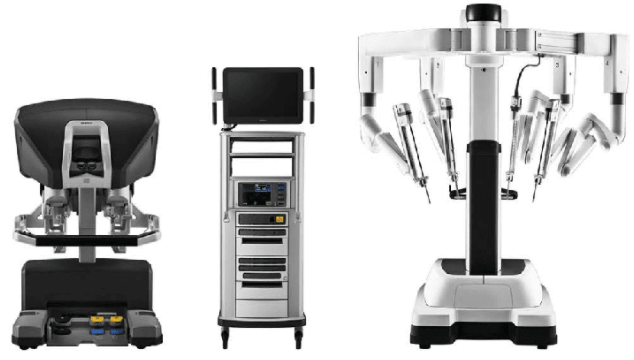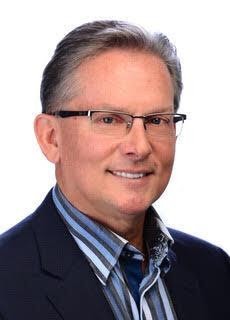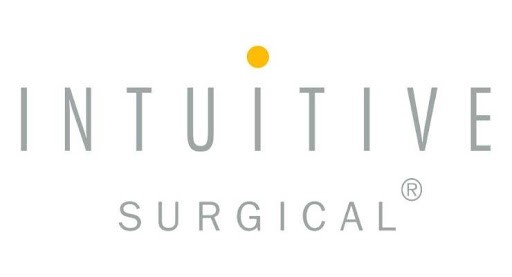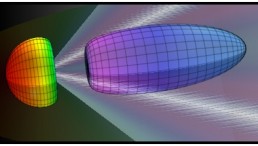Tim Murawski joined Intuitive, Inc. in August 2000 as an Account Manager. Shortly after he joined, Intuitive's stock price was $4.53. By the time Murawski left in 2007, he had worked his way up to the position of Area Sales Director. Intuitive's stock price had worked its way up too. It sat at $65.70, an increase of 1319% since the beginning of Murawski's tenure.
Today, Intuitive's market capitalization is over $119 billion. Of course, since it's not a consumer company like Uber or Airbnb, Intuitive's story isn't as well-known. Despite this, Intuitive outranks both Airbnb and Uber in market capitalization and has generated multiple decades of profit. Neither Airbnb nor Uber has seen even one year of profit.
All that said, when it's told, the story of Intuitive is a tale of technology. Usually, the role of sales, marketing, and commercialization plays second fiddle to the story of the technology. The case of Intuitive Inc. is no exception. Later on in Intuitive's journey, however, it becomes increasingly clear that what moves the company forward goes beyond R&D.
Intuitive is Born as a U.S. Army Project
The technology that led to Intuitive's current market capitalization of $119 billion in 2021 was born over 30 years ago. On behalf of the U.S. Army, the non-profit research institute, SRI International, began researching telepresence operations. The army was interested in this technology as a way for doctors to conduct operations on soldiers remotely. All SRI's research took place in the 1980s before Intuitive was incorporated. At the time, Intuitive's founder, Dr. Frederic Moll, was busy building two medical equipment businesses which he later sold.
Intuitive became a company several years later in 1995 after Moll's partner, John Freund, obtained an option to acquire SRI's intellectual property. The newly incorporated company refined SRI's system with a series of prototypes until it landed on the daVinci system. While working through the FDA approval process, Intuitive first began marketing the system in Europe.
After obtaining FDA approval and hiring salespeople like Tim Murawski, Intuitive took off. In 2007, the year Murawski left, the company's total sales equaled $600.8 million. And it was growing quickly. As of July 2021, total sales for Intuitive hit $1.3 billion.

The Untold Story of Tim Murawski's Domain: Commercialization and Sales
Bringing any medical device to market in the United States is fraught with regulatory complications and financial risk. Bringing a medical device like the daVinci to market is among the hardest things to do. The daVinci helps doctors conduct operations on patients, which is one of the riskiest treatment options. Therefore, Intuitive's technology faced a high degree of regulatory scrutiny as it was tested and deployed to the market.
"When I told cardiac surgeons I accepted a job at Intuitive to help launch the daVinci system, they said, 'you're crazy, robotics will never work in surgery.' I said, I disagree, I know I'm on to something very special," says Tim Murawski.
Yet even when a device like the daVinci passes regulatory muster, success isn't guaranteed. Hospitals and trained doctors are a special kind of buyer. So marketing and selling to these buyers requires a unique, deeply technical set of skills. Salespeople like Tim Murawski need to help doctors understand the clinical benefits of the technology. At the same time, they also need to be capable of speaking with CFOs to address their financial concerns and priorities. This requires a deep understanding of the hospital's market and how the device plays into the hospital's revenue forecasts.
"During our mitral valve clinical trial, a surgeon invited me to meet the patient the next day after the mitral valve repair. At 8 am the patient was sitting on the edge of his bed and said, 'doc, I'm ready to go home.' The surgery was completed less than 24 hours earlier. I could see with my own eyes how we were making a positive impact on the patient's life," says Tim Murawski.
"On a regular basis, surgeons told me that the daVinci system helps to make them a better surgeon and that the patients were benefiting from it every day."
During Tim Murawski's time at Intuitive, the system was approved for the following categories of surgical procedures:
● General laparoscopic
● Thoracoscopic
● Cardiac procedures performed with adjunctive incisions
● Urologic
● Gynecologic
These approvals massively increased Intuitive's potential total addressable market. These approvals also presented salespeople like Murawski with a new set of customers. After the FDA's approval, Murawski and his colleagues were expected to sell to a wide range of other specialists. That meant reorienting their sales procedures to speak to gynecologists, heart surgeons, urologists, and others.

Tim Murawski's Long History of Innovation
All of the challenges in medical device commercialization listed above are universal. Yet life becomes even harder with a device like the daVinci because the technology is brand new. Doctors and hospitals have to be introduced to a brand new way of doing things. They have to be comfortable that the device is tested, effective, and worth the investment. Much of the work of introducing this new technology to the market falls on sales and marketing people like Murawski. It's up to them to build trust with key opinion leaders in the medical field and spur adoption. Murawski and his colleagues are a big part of the reason that using the daVinci system for certain procedures became common practice.
For Murawski, introducing new technology to the market was nothing new. He began his career in medical device sales at Baxter International where he sold a product called the Interlink Needleless IV. This product helped mitigate the threat to frontline healthcare workers from unintentional needle sticks from infected needles. After that, Murawski spent three years at a startup dedicated to innovative medical technology as a Regional Sales Manager. Around the time Murawski finished up there, the company was acquired by the multinational giant, Tyco.
Coming into his role at Intuitive, Murawski had already spent several years introducing new products to the market. That said, given the risk involved with Intuitive's system compared to a needleless IV, it was a new kind of challenge.
A Team-First Philosophy
To understand how Tim Murawski made the leap to medical telerobotics, one only needs to look at his guiding principles. In interviews, Murawski cites his team-first philosophy as central to his career success. He explains that his approach revolves around preparing, coaching, and mentoring all of his team members. Early in his career, Murawski may have been hesitant to reach out-whether it was to solicit or give out help. But he soon learned that, by seeking out and giving help when needed, his team was better able to increase sales.
And it's a good thing he did. Because Tim Murawski and his teams have made and will continue to make, huge impacts in the field of medical robotics.
* This is a contributed article and this content does not necessarily represent the views of sciencetimes.com













![Sat-Nav in Space: Best Route Between Two Worlds Calculated Using 'Knot Theory' [Study]](https://1721181113.rsc.cdn77.org/data/thumbs/full/53194/258/146/50/40/sat-nav-in-space-best-route-between-two-worlds-calculated-using-knot-theory-study.png)

